Filter by
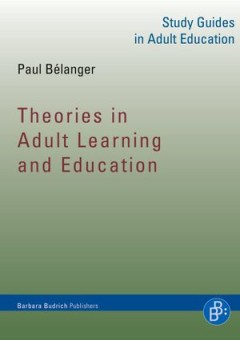
Theories in Adult Learning and Education
Adult Learning and Education The graduate student guide in adult education explores theories of adult learning and adult education participation. It provides a frame of reference for understanding the development of a rapidly evolving field and for enhancing knowledge and competencies in this professional domain. The publication is divided into two sections: a section on adult learning theories…
- Edition
- -
- ISBN/ISSN
- 9783866496828
- Collation
- 106 halaman
- Series Title
- Study Guides in Adult Education
- Call Number
- 370 BEL t
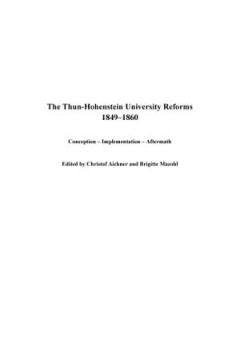
The Thun-Hohenstein University Reforms 1849–1860 : Conception – Implement…
The book gathers 14 articles on the reforms of the Austrian University system from 1848 to 1860 named after Leo Thun Hohenstein. The reforms mark a turning point in the history of the Austrian educational landscape. The book provides new perspectives on the work of Leo Thun-Hohenstein, using to date unknown sources and new approaches.
- Edition
- -
- ISBN/ISSN
- 9783205205531
- Collation
- -
- Series Title
- -
- Call Number
- 370 AIC t
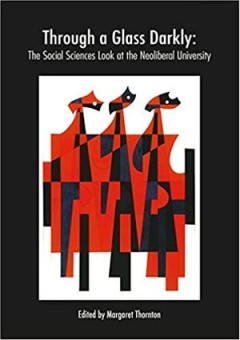
Through a Glass Darkly : The Social Sciences Look at the Neoliberal University
This collection of essays arose from a workshop held in Canberra in 2013 under the auspices of the Academy of Social Sciences in Australia to consider the impact of the encroachment of the market on public universities. While the UK tripled fees in 2013 and determined that the teaching of the social sciences and the humanities would no longer be publicly funded, it was feared that Australia wou…
- Edition
- -
- ISBN/ISSN
- 9781925022148
- Collation
- -
- Series Title
- -
- Call Number
- 370 THO t
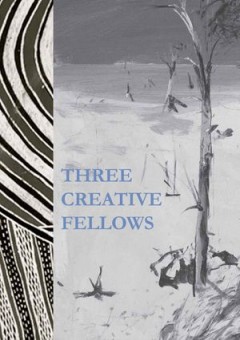
Three Creative Fellows : Sidney Nolan, Arthur Boyd and Narritjin Maymuru
This catalogue presents works by three prominent Australian artists – Sidney Nolan, Arthur Boyd and Narritjin Maymuru – featured in the exhibition Three Creative Fellows, at the Drill Hall Gallery from 9 August – 16 September 2007. All three artists were recipients of ANU Creative Arts Fellowships, and the authors of the essays presented in this volume are prominent ANU scholars. Dr Mary …
- Edition
- -
- ISBN/ISSN
- 9781921313578
- Collation
- -
- Series Title
- -
- Call Number
- 370 EAG t
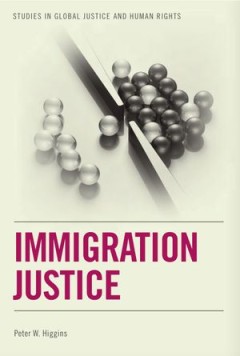
Immigration Justice
What moral standards ought nation-states abide by when selecting immigration policies? Peter Higgins argues that immigration policies can only be judged by considering the inequalities that are produced by the institutions – such as gender, race and class – that constitute our social world. He challenges conventional positions on immigration justice, including the view that states have a ri…
- Edition
- -
- ISBN/ISSN
- 9780748670277
- Collation
- -
- Series Title
- -
- Call Number
- 300 HIG i
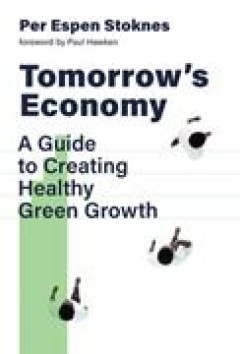
Tomorrow's Economy: A Guide to Creating Healthy Green Growth
Tomorrow's Economy: A Guide to Creating Healthy Green Growth Tomorrow's Economy: A Guide to Creating Healthy Green Growth By Per Espen Stoknes The MIT Press DOI: https://doi.org/10.7551/mitpress/13677.001.0001 ISBN electronic: 9780262361446 Publication date: 2021 A balance sheet for the planet: How we can achieve healthy growth—more regenerative than wasteful, instilling equity rather …
- Edition
- -
- ISBN/ISSN
- 9780262361446
- Collation
- -
- Series Title
- -
- Call Number
- 330 STO t

Rethinking Environmentalism: Linking Justice, Sustainability, and Diversity
A multidisciplinary examination of alternative framings of environmental problems, with using examples from forest, water, energy, and urban sectors. Does being an environmentalist mean caring about wild nature? Or is environmentalism synonymous with concern for future human well-being, or about a fair apportionment of access to the earth's resources and a fair sharing of pollution burdens? …
- Edition
- -
- ISBN/ISSN
- 9780262349925
- Collation
- -
- Series Title
- -
- Call Number
- 300 RET
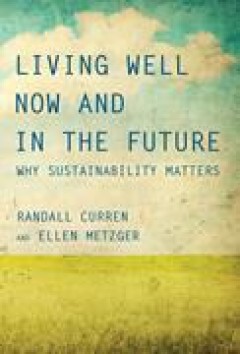
Living Well Now and in the Future: Why Sustainability Matters
A philosopher and a scientist propose that sustainability can be understood as living well together without diminishing opportunity to live well in the future. Most people acknowledge the profound importance of sustainability, but few can define it. We are ethically bound to live sustainably for the sake of future generations, but what does that mean? In this book Randall Curren, a philosoph…
- Edition
- -
- ISBN/ISSN
- 9780262339100
- Collation
- -
- Series Title
- -
- Call Number
- 300 CUR l
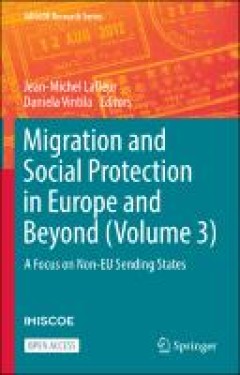
Migration and Social Protection in Europe and Beyond (Volume 3): A Focus on N…
This third and last open access volume in the series takes the perspective of non-EU countries on immigrant social protection. By focusing on 12 of the largest sending countries to the EU, the book tackles the issue of the multiple areas of sending state intervention towards migrant populations. Two “mirroring” chapters are dedicated to each of the 12 non-EU states analysed (Argentina, Chin…
- Edition
- Ed. 1
- ISBN/ISSN
- -
- Collation
- -
- Series Title
- -
- Call Number
- 300 LAF m

Inquiry-Based Learning - Undergraduate Research: The German Multidisciplinary…
This open access book provides a systematic overview of experiences with Inquiry-Based Learning (IBL) and undergraduate research (UR) in German universities, covering both research universities (Universitäten) and universities of applied sciences (Fachhochschulen). Divided into three parts, the book starts with the principles and common practices of IBL/UR at all universities. Part Two discuss…
- Edition
- Ed. 1
- ISBN/ISSN
- -
- Collation
- 406
- Series Title
- -
- Call Number
- 378 INQ i
 Computer Science, Information & General Works
Computer Science, Information & General Works  Philosophy & Psychology
Philosophy & Psychology  Religion
Religion  Social Sciences
Social Sciences  Language
Language  Pure Science
Pure Science  Applied Sciences
Applied Sciences  Art & Recreation
Art & Recreation  Literature
Literature  History & Geography
History & Geography